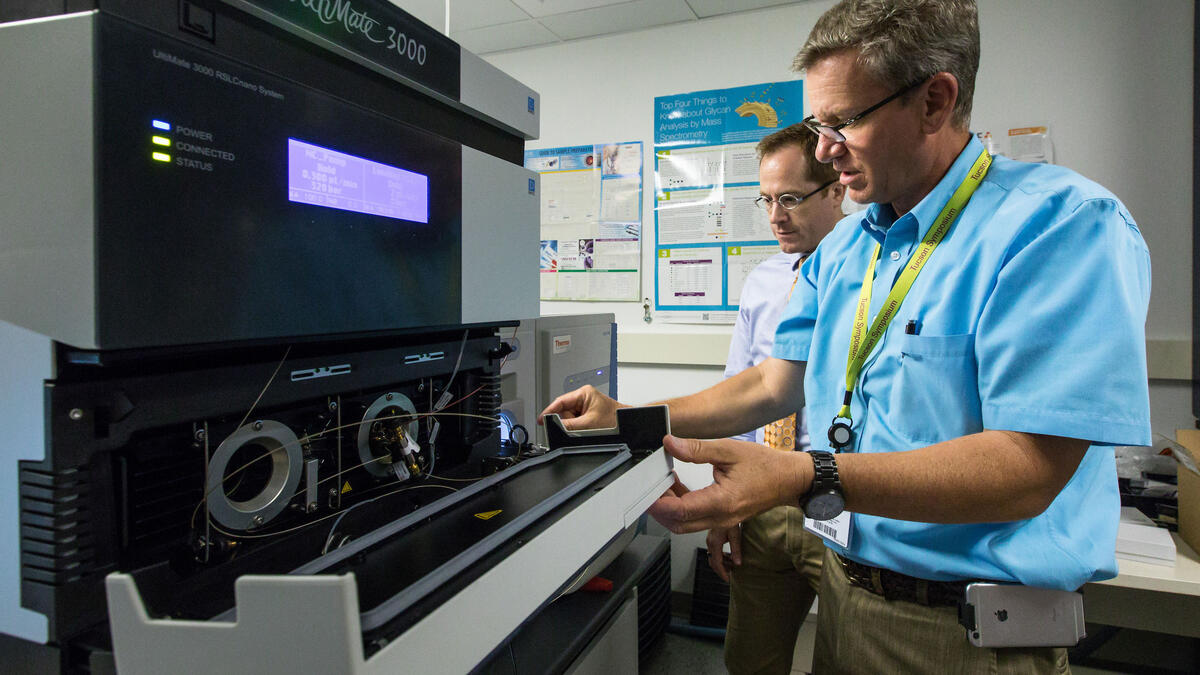Infectious-disease researchers at Mayo Clinic and Arizona State University are working on a new test to detect valley fever more quickly and efficiently than currently available tests.
Getting there involves looking for the fungus that causes valley fever rather than searching for antibodies in potentially infected patients. That elusive fungus, say the researchers, can be hard to diagnose on the first try early on in infection, a reality that they are looking to change.
“Valley fever is a condition where current testing could be further optimized for patients,” said Thomas Grys, a microbiologist and researcher at Mayo Clinic, who teamed up with Douglas Lake, an immunologist and researcher at ASU.
The precise focus of their collaboration is a microscopic fungal spore, which continues to pose a health risk to people and pets.
The spores are from the fungus called Coccidioides, which is native to Southwestern soil. These spores may cause the infection known as valley fever if inhaled.
In some, valley fever may cause temporary flu-like symptoms that eventually resolve on their own. In others, it can cause a host of respiratory ailments if left untreated, including pneumonia. According to the latest scientific data, an estimated 15 to 30 percent of community-acquired pneumonias can be attributed to valley fever in the Phoenix and Tucson metropolitan areas.
Diagnostic tests currently available in the U.S. for valley fever rely on a blood test that looks for antibodies in potentially infected patients. The problem, Lake said, is that some patients don’t develop antibodies until several weeks or even months after being infected.
“Some patients never make antibodies at all, even though they are sick with the disease,” said Lake, adding that this segment of tough-to-diagnose patients are often treated with antibiotics as a first line of defense to combat their symptoms (which typically include fever, cough, chest discomfort and fatigue). These patients might benefit from treatment with an antifungal, since antibiotics don’t work against fungi.
The new test that Lake and Grys are in the process of developing doesn’t rely on a patient’s ability to develop antibodies when exposed to the Coccidioides fungus. Rather, their proposed test would detect the microscopic “bits and pieces” of fungus in their system if present.
ASU was recently awarded a $750,000 grant from the Arizona Biomedical Research Commission to fund Lake and Grys’ research to develop this new test. This research is also partially supported through the Mayo Clinic Geraldine Colby Zeiler Professorship of Cytopathology Fund and through a grant from Mayo Clinic’s Center for Individualized Medicine.
“Our hope is that our proposed method will one day help diagnose patients quicker, reduce the use of antibiotics and cut the number of return visits to the doctor,” Grys said of the test that may be a few years in the making.
“We are excited about the potential our research may uncover for patients. It’s truly been a great collaboration,” added Lake, who is an associate professor in the School of Life Sciences.
Grys and Lakes’ most recent findings on this topic were published in the Journal of Proteome Research.
Top photo: ASU immunologist and Associate Professor Douglas Lake (right) and Mayo Clinic microbiologist Thomas Grys check on the mass spectrometer in the Molecular Biology Lab at the Mayo Clinic's Scottsdale facility, as they collaborate to develop a method of detecting valley fever and other infectious diseases. Photo by Charlie Leight/ASU Now
More Health and medicine

Pathak selected to lead School of Technology for Public Health
Jyotishman Pathak, an internationally recognized leader in biomedical informatics and population health sciences, will be the inaugural dean of the new School of Technology for Public Health at…

ASU teams up with Maricopa County to address local life expectancy gap
Arizona State University’s College of Health Solutions is partnering with the Maricopa County Board of Supervisors to address a 14-year life expectancy gap between residents of north Scottsdale and…

ASU professor named Rural Health Fellow
If you live in a major city, chances are you don’t spend much time thinking about what happens in smaller towns and rural areas. But Aaron Guest, an assistant professor at Arizona State…


